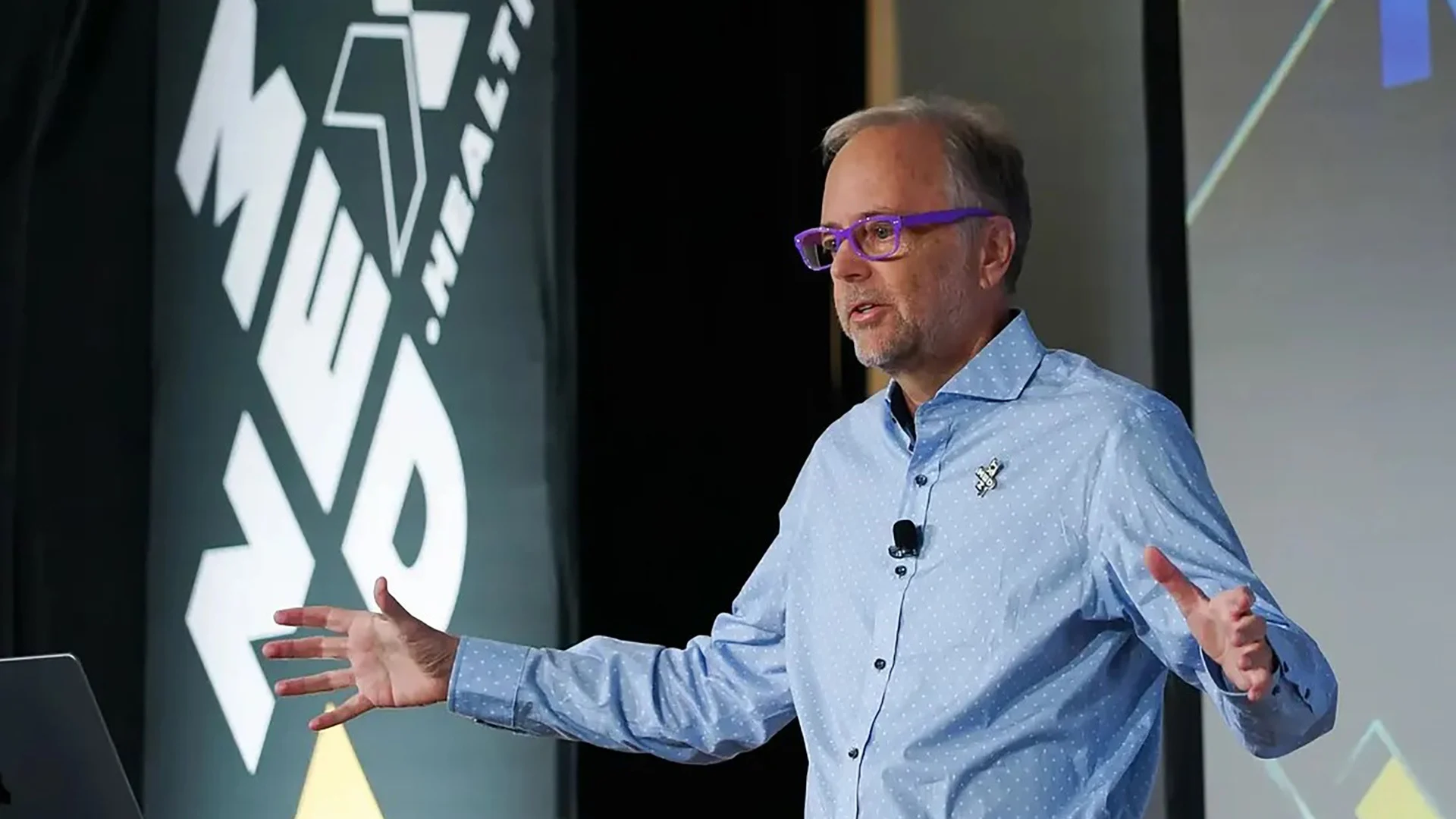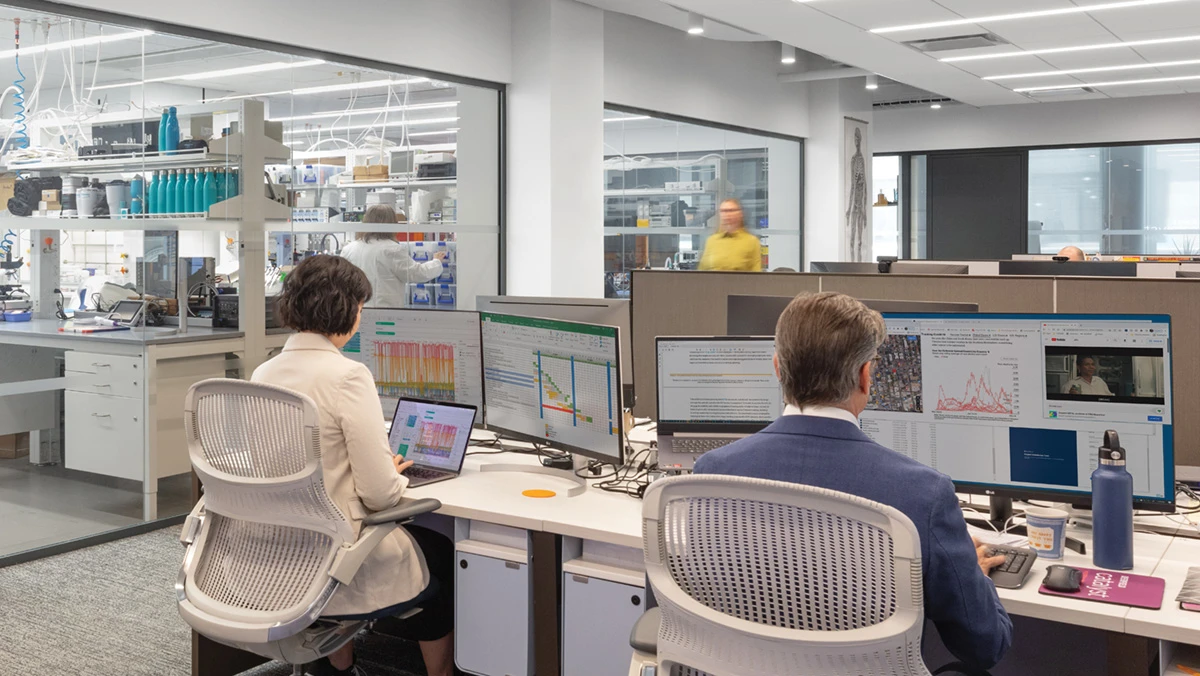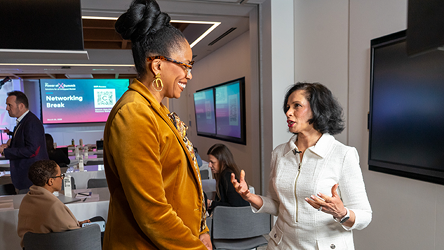August 18, 2025
Article
How Missed Cancer Diagnosis Led Founder to Build AI Platform for Patients

Overview
CureWise founder Steve Brown turned his own cancer scare into a platform for patients seeking more precise answers
After an AI-assisted self-diagnosis saved his life, Steve Brown founded CureWise to give patients smarter support
When Steve Brown set out to build AI agents for education, he didn’t imagine he’d rely on one to save his life. But after months of unexplained weight loss, fatigue and inconclusive medical tests, Brown’s search for answers led him to repurpose his AI tools to scrutinize his own medical records.
The results were immediate. The system flagged signs of a rare blood cancer that had eluded multiple specialists, pointing him toward a bone marrow biopsy that confirmed the diagnosis. Brown began treatment early, a window of opportunity he believes was the difference between recovery and a far more dire outcome.
“It was very striking,” Brown said in an interview. “My doctors before were saying it was stress or maybe gas. The AI was immediately saying plasma cell dyscrasias. You need to get a bone marrow biopsy, which turned out to be 100 percent correct.”
From Fire to Founder
The turning point came after a January 2025 wildfire destroyed Brown’s Los Angeles home. Displaced to Palm Desert, he sought care from a new health system that ordered fresh tests. Those revealed the cancer, still in a treatable stage.
Brown had spent much of his career in Silicon Valley, including work in medical technology and AI-driven education projects. But his illness, and the year-long period of misdiagnoses, shifted his focus. In the hospital, he rewrote his AI agents to “think” like different types of doctors, from hematologists to cardiologists, and have them debate possible diagnoses.
The multi-agent approach replicates so called tumor boards, or conferences of multidisciplinary cancer specialists, used by hospitals to assess patients with complex cancer. While typically these boards include a range of human specialists who review and debate a patient’s records, healthcare systems are starting to use AI as well to aid their efforts. At Stanford Medicine, specialists review 4,000 of these tumor boards a year, and have starting using AI agents to help clinicians research, analyze and summarize their work, saving hours per person per case.
What Brown built with CureWise aims to mimic that approach.
“Let's intentionally create a series of agents where we're trying to get a diversity of perspective and then let's synthesize those results and figure out where the answers converge,” he said.
Building a Patient’s Decision Team with AI
CureWise, launched earlier this year, is designed to give people the kind of AI-assisted support Brown created for himself. Users upload their medical records, which the system organizes so the AI can analyze without confusion.
A panel of agents, each with a different specialty or training background, reviews the case and produces a list of findings and potential follow-up actions to discuss with a clinician.
The system never delivers a definitive diagnosis. Instead, it generates a “punch list” of issues to explore, such as asking for a specific lab test, investigating a genetic mutation, or reviewing clinical trial options.
“It will say, ‘based on everything you told us, here are things that you should look at, here are things that you should consider.’ And then you can go into a focused chat conversation with any one of those agents to ask more questions and to dig deeper. You can also search for clinical trials,” he said.
Precision Medicine as the Endgame
While the initial focus is on helping people better understand their diagnoses and treatment options, Brown’s long-term goal is more ambitious: accelerating the shift toward precision medicine.
“In cancer, 18 million people have 18 million different diseases. They're completely unique, and we lump them together and treat them with blunt instruments,” he said. “But the reality is, the future of cancer and the ultimate cures for cancer will come from treating the exact genetically unique disease that you have.”
Brown’s own case provides an example: genetic analysis suggested an off-label drug combination with strong evidence for his tumor profile. Convincing his care team to use it required persistence and multiple second opinions, but he was able to try this treatment option and the result was a rapid and sustained complete response.
He believes CureWise can help more patients make those informed requests, as well as help drug developers working on highly targeted therapies find the right trial participants, a difficult task that often fails.
In the U.S., less than 4 percent of adults participate in clinical trials, and among global cancer trials, only 40 percent manage to recruit more than five patients, leading to delays and even halted research, according to an industry analysis.
Addressing the Patient-AI Gap
While many healthcare stakeholders, including hospitals, physicians, insurance companies and biopharma companies, have started using AI tools to review claims, interpret medical tests, respond to patients and help with research, few patient-side options have emerged, Brown said.
“I could see there's a real need for better tools to help patients like me figure out what's going on, figure out what to talk to their doctor about, figure out what the options could be and learn about it,” he said.
CureWise’s model also taps into the rising demand for tools that help people manage their own health data, especially as more hospitals offer patients access to full electronic records. The company plans to expand features for clinical trial matching and integrate emerging data sources, such as wearable devices and advanced genomic testing.
Looking Ahead
Brown sees CureWise as both a near-term resource and a long-term play. Today, it can help patients arrive at appointments better prepared, with specific, data-backed questions for their doctors. In the future, it could be part of a broader ecosystem where AI continuously monitors a person’s health data, flags concerns early, and guides them to individualized therapies.
“The ultimate mission, the moonshot, is to be part of AI's role in leading to better cures for cancer,” he said.





